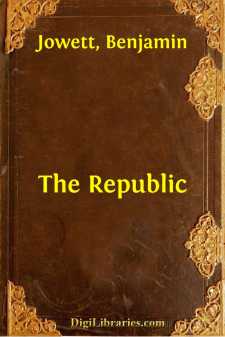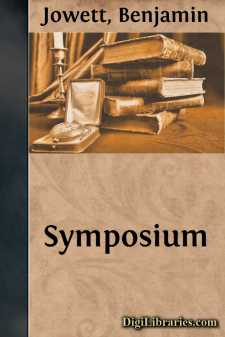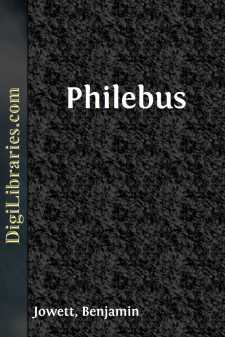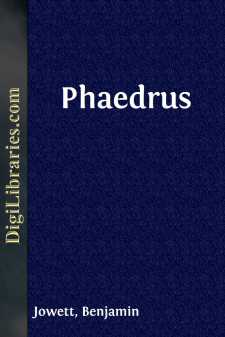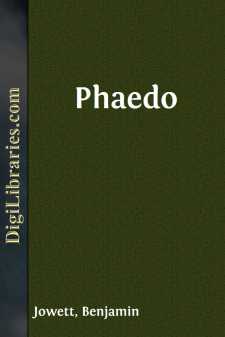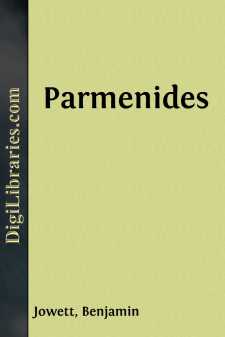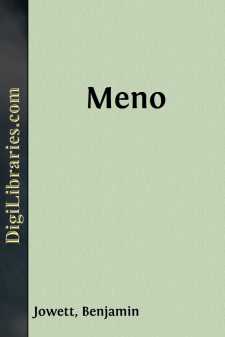Categories
- Antiques & Collectibles 13
- Architecture 36
- Art 48
- Bibles 22
- Biography & Autobiography 813
- Body, Mind & Spirit 142
- Business & Economics 28
- Children's Books 17
- Children's Fiction 14
- Computers 4
- Cooking 94
- Crafts & Hobbies 4
- Drama 346
- Education 46
- Family & Relationships 57
- Fiction 11829
- Games 19
- Gardening 17
- Health & Fitness 34
- History 1377
- House & Home 1
- Humor 147
- Juvenile Fiction 1873
- Juvenile Nonfiction 202
- Language Arts & Disciplines 88
- Law 16
- Literary Collections 686
- Literary Criticism 179
- Mathematics 13
- Medical 41
- Music 40
- Nature 179
- Non-Classifiable 1768
- Performing Arts 7
- Periodicals 1453
- Philosophy 64
- Photography 2
- Poetry 896
- Political Science 203
- Psychology 42
- Reference 154
- Religion 513
- Science 126
- Self-Help 84
- Social Science 81
- Sports & Recreation 34
- Study Aids 3
- Technology & Engineering 59
- Transportation 23
- Travel 463
- True Crime 29
Benjamin Jowett
Benjamin Jowett (1817-1893) was a renowned British classical scholar and theologian, best known for his translations of Plato's works into English. He served as Master of Balliol College, Oxford, from 1870 to 1893, where he played a significant role in modernizing the college's educational practices and infrastructure. Jowett's influential work extended beyond translations; he was also noted for his essays and contributions to the study of theology and philosophy.
Author's Books:
Sort by:
by:
Benjamin Jowett
Section 1. Socrates begins the Timaeus with a summary of the Republic. He lightly touches upon a few points,—the division of labour and distribution of the citizens into classes, the double nature and training of the guardians, the community of property and of women and children. But he makes no mention of the second education, or of the government of philosophers. And now he desires to see the ideal...
more...
by:
Benjamin Jowett
INTRODUCTION AND ANALYSIS. Some dialogues of Plato are of so various a character that their relation to the other dialogues cannot be determined with any degree of certainty. The Theaetetus, like the Parmenides, has points of similarity both with his earlier and his later writings. The perfection of style, the humour, the dramatic interest, the complexity of structure, the fertility of illustration,...
more...
by:
Benjamin Jowett
BOOK I. I went down yesterday to the Piraeus with Glaucon the son of Ariston, that I might offer up my prayers to the goddess (Bendis, the Thracian Artemis.); and also because I wanted to see in what manner they would celebrate the festival, which was a new thing. I was delighted with the procession of the inhabitants; but that of the Thracians was equally, if not more, beautiful. When we had finished...
more...
by:
Benjamin Jowett
INTRODUCTION. Of all the works of Plato the Symposium is the most perfect in form, and may be truly thought to contain more than any commentator has ever dreamed of; or, as Goethe said of one of his own writings, more than the author himself knew. For in philosophy as in prophecy glimpses of the future may often be conveyed in words which could hardly have been understood or interpreted at the time...
more...
by:
Benjamin Jowett
INTRODUCTION. The Protagoras, like several of the Dialogues of Plato, is put into the mouth of Socrates, who describes a conversation which had taken place between himself and the great Sophist at the house of Callias—'the man who had spent more upon the Sophists than all the rest of the world'—and in which the learned Hippias and the grammarian Prodicus had also shared, as well as...
more...
by:
Benjamin Jowett
INTRODUCTION AND ANALYSIS. The Philebus appears to be one of the later writings of Plato, in which the style has begun to alter, and the dramatic and poetical element has become subordinate to the speculative and philosophical. In the development of abstract thought great advances have been made on the Protagoras or the Phaedrus, and even on the Republic. But there is a corresponding diminution of...
more...
by:
Benjamin Jowett
INTRODUCTION. The Phaedrus is closely connected with the Symposium, and may be regarded either as introducing or following it. The two Dialogues together contain the whole philosophy of Plato on the nature of love, which in the Republic and in the later writings of Plato is only introduced playfully or as a figure of speech. But in the Phaedrus and Symposium love and philosophy join hands, and one is...
more...
by:
Benjamin Jowett
INTRODUCTION. After an interval of some months or years, and at Phlius, a town of Peloponnesus, the tale of the last hours of Socrates is narrated to Echecrates and other Phliasians by Phaedo the 'beloved disciple.' The Dialogue necessarily takes the form of a narrative, because Socrates has to be described acting as well as speaking. The minutest particulars of the event are interesting to...
more...
by:
Benjamin Jowett
INTRODUCTION AND ANALYSIS. The awe with which Plato regarded the character of 'the great' Parmenides has extended to the dialogue which he calls by his name. None of the writings of Plato have been more copiously illustrated, both in ancient and modern times, and in none of them have the interpreters been more at variance with one another. Nor is this surprising. For the Parmenides is more...
more...
by:
Benjamin Jowett
INTRODUCTION. This Dialogue begins abruptly with a question of Meno, who asks, 'whether virtue can be taught.' Socrates replies that he does not as yet know what virtue is, and has never known anyone who did. 'Then he cannot have met Gorgias when he was at Athens.' Yes, Socrates had met him, but he has a bad memory, and has forgotten what Gorgias said. Will Meno tell him his own...
more...




